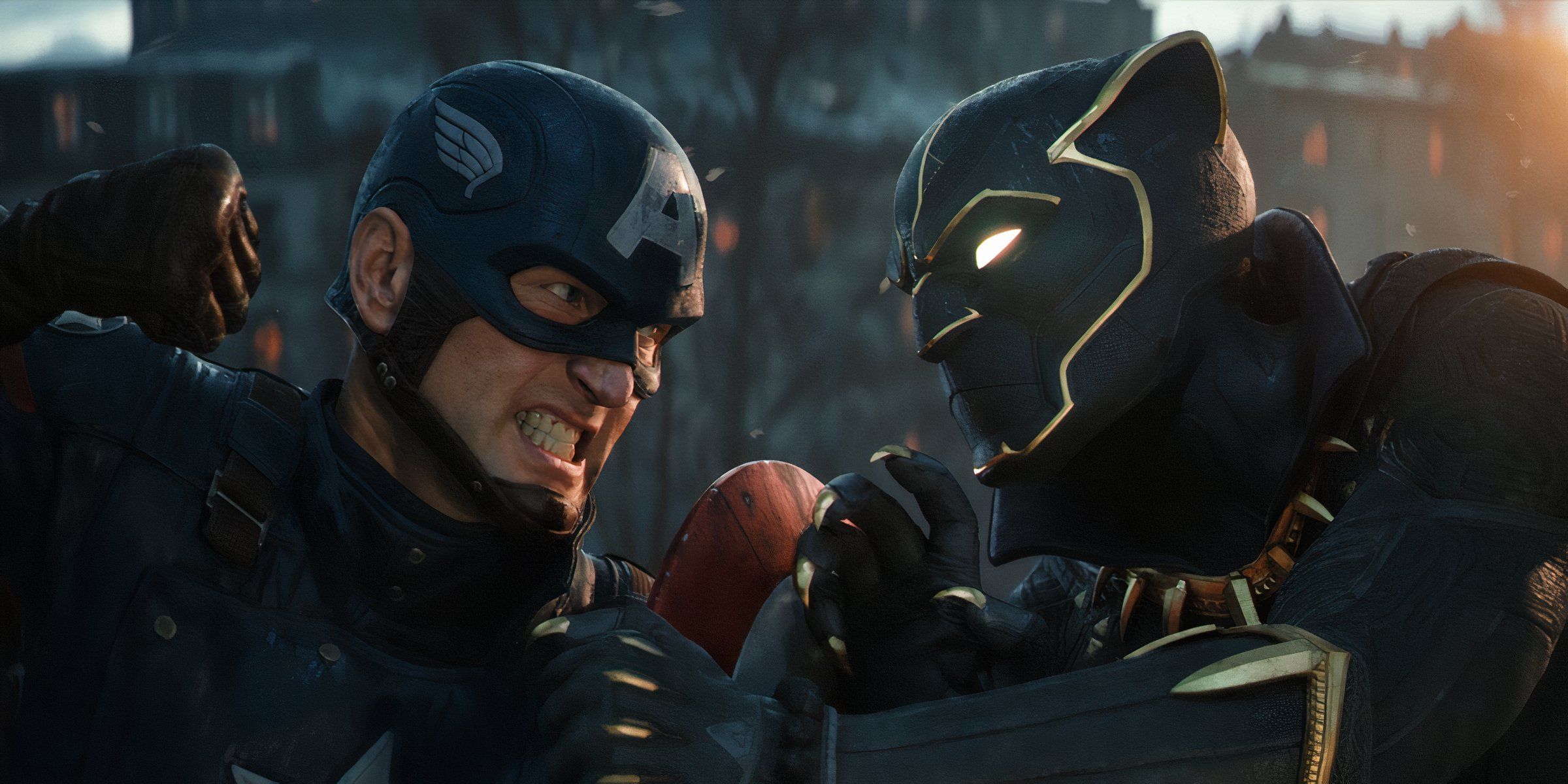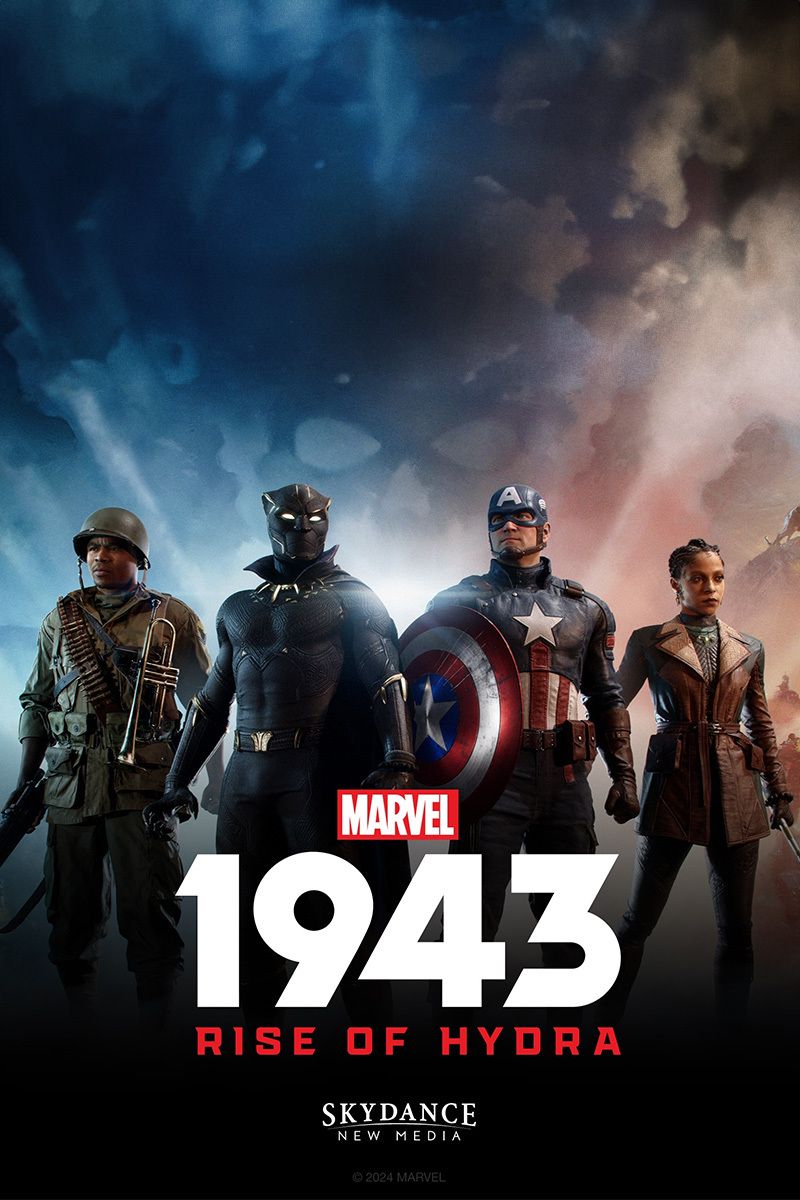
Highlights
- Captain America and Black Panther’s initial conflict in Marvel 1943 is predictable but could lead to a more emotional narrative if subverted.
- The possibility of unresolved conflicts with Hydra could have a significant impact on a potential sequel’s canon.
- While a modern-day sequel featuring a future Black Panther could be enticing, it may lose the unique 1940s atmosphere of Rise of Hydra.
He may already look the part, but the Captain America who appears in Marvel 1943: Rise of Hydra is still decades away from being enlisted into the Avengers and as such it’s easy to imagine him being far more of a straight-laced do-gooder boy scout. That said, as a soldier enlisted into what was the first and most epic challenge he’d suited up against, Steve Rogers will not be taking Hydra’s threat lightly in Marvel 1943: Rise of Hydra.
Steve doesn’t appear to wield a sidearm in this
original iteration of Marvel’s World War 2 period
and that may suggest he’s firmly against killing, even in the war effort, but his aggressive apprehension toward Azzuri’s Black Panther ensures he isn’t willing to let matters get worse or out of hand with multiple super soldiers like himself running amok.
Indeed, Captain America, the United States government, and possibly SHIELD must highly regard Black Panther as a threat if Steve’s allowed to let Azzuri sidetrack him away from the obvious perils of Hydra’s occupations. However, like most superhero outings where two characters are initially antagonistic for one reason or another, it’s almost guaranteed that Steve and Azzuri will inevitably overcome differences and work together against their common enemy. This trope is predictable and cookie-cutter, though, and subverting it by the end of the game could grant it much more narrative and emotional resonance if Marvel 1943 also has a predictably somber conclusion.
Related
Marvel 1943 Reveals Who Is Playing Black Panther, Captain America, and More
The core cast of Marvel 1943: Rise of Hydra is revealed, showing fans who will be playing Captain America, Black Panther, and their allies.
Beautiful Graphics Can’t Substitute a Meaningful Story in Marvel 1943: Rise of Hydra
Skydance chose to pinpoint Captain America and Black Panther’s heated confrontation as a narrative crux in the story trailer for Marvel 1943 and by doing that it insinuates at least two of the four playable protagonists will be at each other’s throats for a time. The problem here is that basically nobody would expect them to be battling one another the entire game and that their team-up would eventually occur at some climactic point in the story.
If so, Marvel 1943 may not have many other surprises in store and could feature a relatively unengaging story, regardless of how arresting, realistic, and cinematic Rise of Hydra’s cutscenes are in Unreal Engine 5. Indeed, Red Skull is likely the lead antagonist and one of the super soldiers Captain America is chiefly concerned about but a more nuanced rivalry and conflict with Black Panther—or Wakanda at large—could give the plot much more depth.
Part of the story’s predictable nature is that, while it ultimately loses the battle in WW2, Hydra isn’t eradicated and begins operating in the shadows in modern-day Marvel. Therefore, if Captain America and Black Panther leave things unresolved, they will have lost on both accounts.
How Marvel 1943: Rise of Hydra’s Ending Could Affect a Future Sequel
Steve and Azzuri never getting along wouldn’t be a superficial subversion, either, because having that quarrel persist amid their respective conflicts with Hydra could have a massive impact on the future Rise of Hydra’s canon is building foundations for in 1943. If Steve and Azzuri’s relationship concludes in a place of antagonism it would be interesting to see how Steve then gets along with T’Chaka or T’Challa in the present day.
Of course,
Marvel 1943
could be planned as a singular standalone game and such direction would make sense given that a trilogy or series of Marvel games taking place in the 1940s might not be feasible.
It would be a stretch to believe more than one game is needed to tell the story Marvel 1943 aims to tell, for instance, and it might be too enticing to leap ahead in time to a modern-day story as Captain America leaps ahead in time via a block of ice. It could be exciting to see how Steve’s relationship with Azzuri could affect the relationships he might later have with a future Black Panther, but doing so would strip the game’s unique 1940s atmosphere away and that’s arguably where it holds all of its weight right now as a novel piece of Marvel media.
